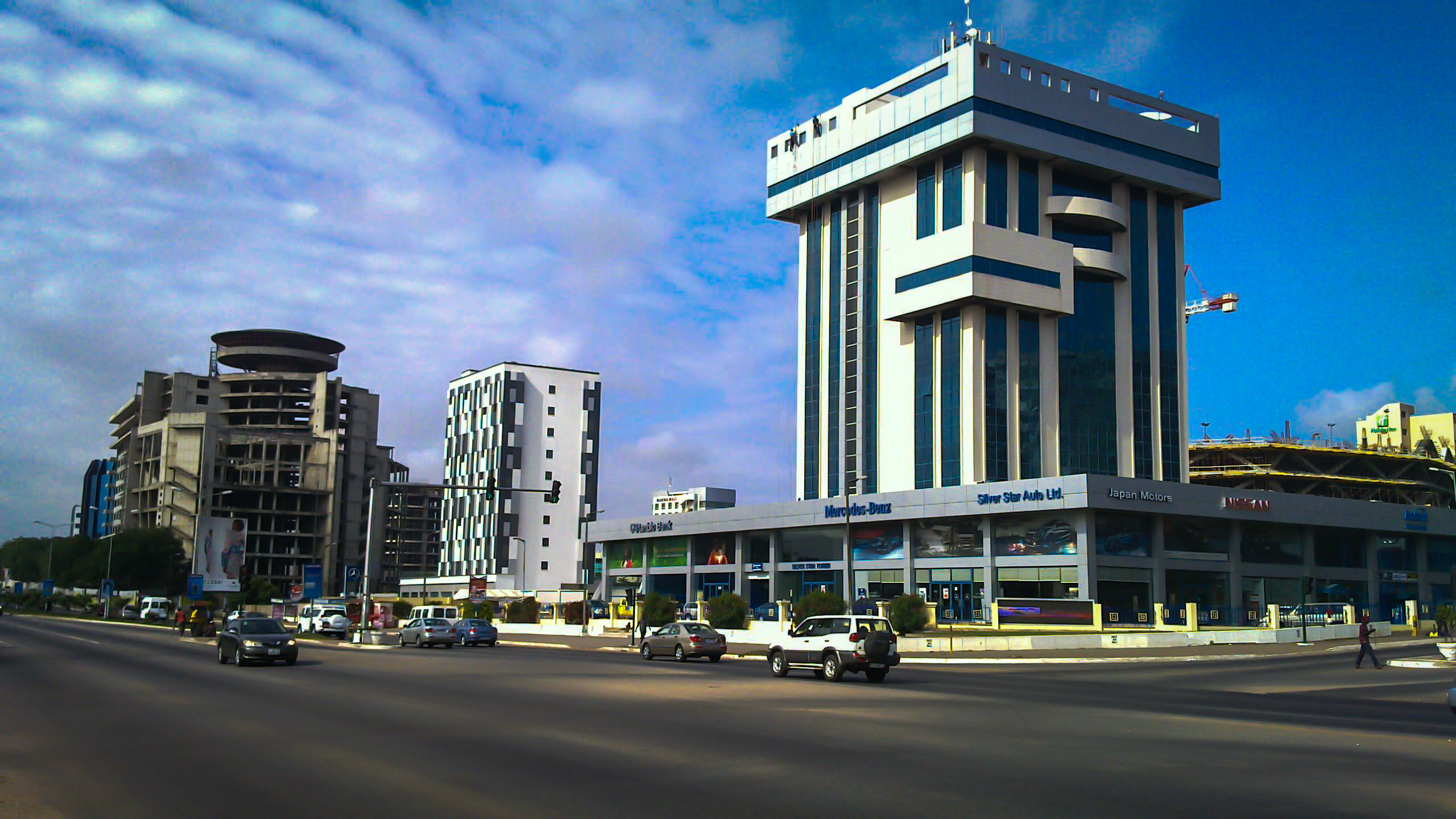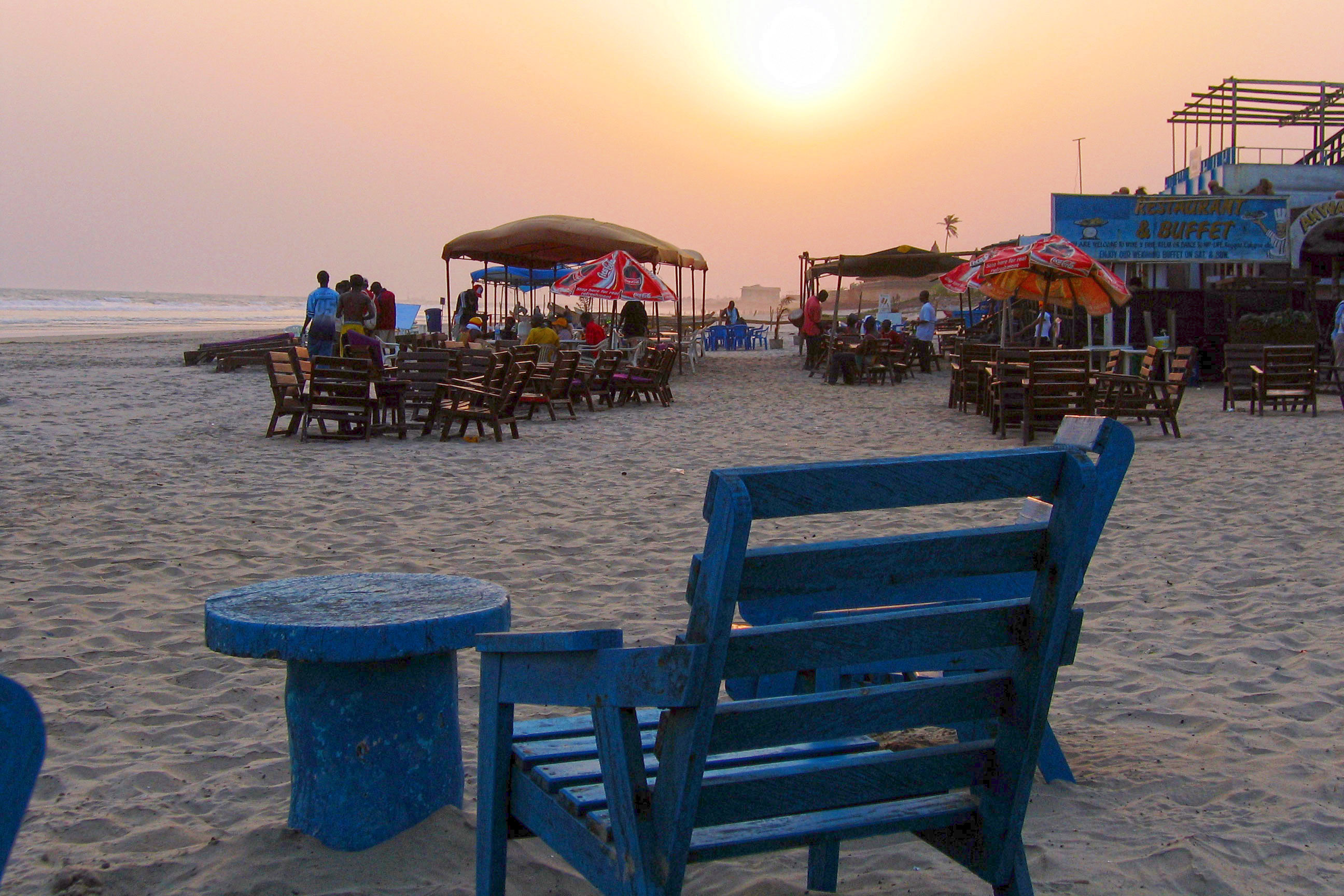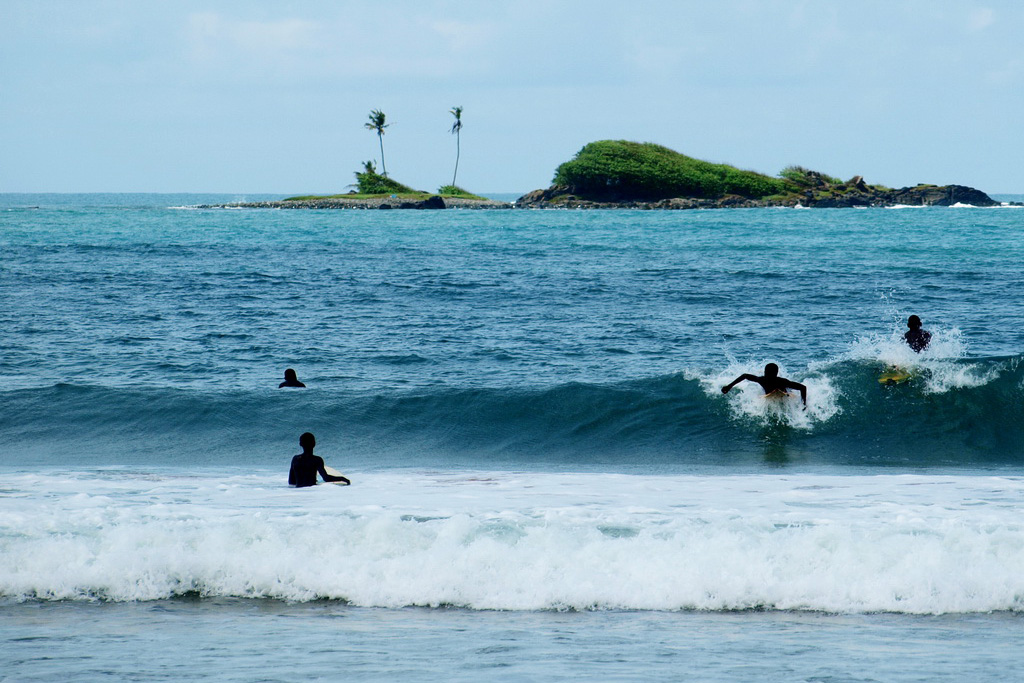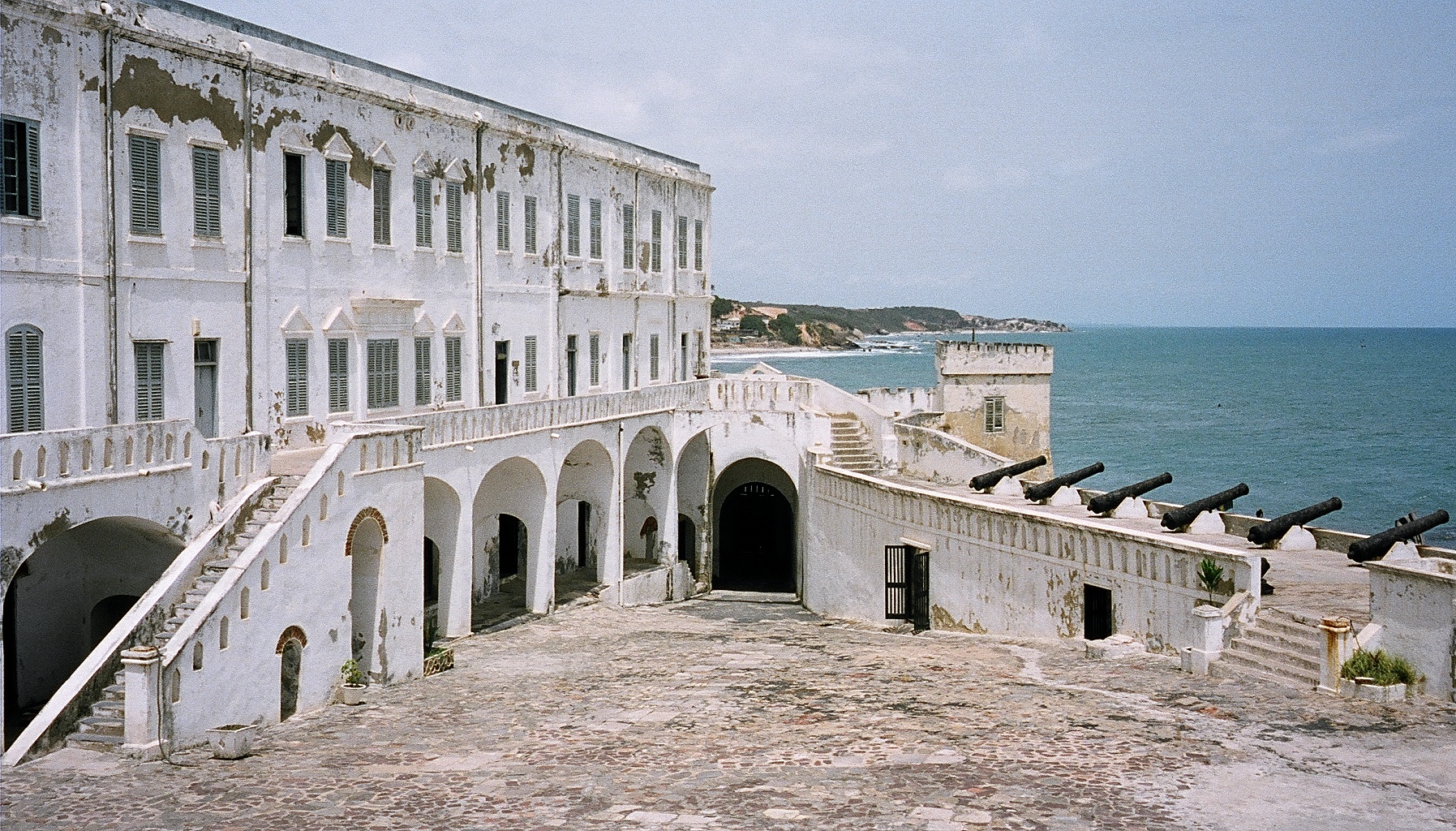Akwaaba! Welcome to Accra

Gallery: Explore Accra
Ghana is one of the world’s fastest-growing economies, and it shows in its capital city of Accra – a lush green place of golden beaches and warm oceans, as well as construction cranes and skyscrapers.

Gallery: Explore Accra
Accra is hot. Sticky. Clouds hang heavy over markets selling mangoes, rice and banku (fermented maize meal), threatening rain that never seems to come. It is a city of crowds and go-slow traffic.

Gallery: Explore Accra
But it is also lush and green, bordered by golden beaches and warm oceans, and today rivals Nigeria’s Lagos for entertainment, dining and art. The discovery of offshore oil in 2010, coupled with gold mining and fair trade cocoa, is driving one of the fastest-growing economies in the world. Accra is now a city of construction cranes, shiny new buildings and busy roads.

Gallery: Explore Accra
It’s is a party city where the white sands of Labadi Beach disappear under food stalls, DJ stands and people relaxing, eating and dancing on national holidays. In Osu, a neighbourhood bordering the beach, chop bars (serving traditional Ghanaian dishes like red-red and fufu) sit next to sushi bars and clubs blasting reggaeton and West African hip hop.

Gallery: Explore Accra
For more than 50 years master craftsman Joseph Ashong “Paa Joe” has been creating intricate fantasy coffins for Accra’s residents: caskets shaped like Coke bottles, lions, tanks and aeroplanes.
The idea has spread. Across Accra today, fantasy coffin workshops build caskets in the shape of anything from bibles to stilettoes and cigarettes, a final flourish to the celebrations that are Ghanaian funerals. A visit to one of these workshops, where a coffin can cost up to R30 000 (including shipment overseas), is a highlight of touristy things to do in Accra.

Gallery: Explore Accra
The Kwame Nkrumah Memorial Park, the final resting place of Ghana’s first president, offers serenity from the city’s energy. A visit to the on-site museum sheds light on the man behind the leader who championed independence movement in Africa.

Gallery: Explore Accra
Two hours west of Accra is the Kakum National Park. Rigged above the rainforest canopy are seven wobbly rope bridges that change the way you view the environment below you. The bridges lead to wooden platforms, where if you’re lucky you’ll spy a colony of colobus monkeys. Opened in 1994, the walkway was the first of its kind in Africa and has led to a renewed interest in saving Ghana’s forests.

Gallery: Explore Accra
The beaches west of Accra are even more spectacular. Outside the city a world of white fine sand beaches, sleepy fishing villages and laid back surfing spots. The iconic surf movie The Endless Summer was filmed in part on the beaches of Ghana.

Gallery: Explore Accra
The small remote town of Takoradi has giant waves and glassy surfaces at sunset where the only audience for surfers are the fishermen launching wooden canoes. Ghana’s surfing capital is Busua, a town of hammocks, cold beer and tourists at beachside bars.

Gallery: Explore Accra
Busua sits between Cape Three Points and the city of Cape Coast, coastal towns that were shipment points in the West African slave trade.
The Cape Coast Castle is beautiful. Its whitewashed walls and blue shutters remind visitors of a monastery. But below the rolling courtyard are the crushing airless dungeons where the slaves were held, chilling spaces fitted out with the relics of the terrible trade.

Gallery: Explore Accra


